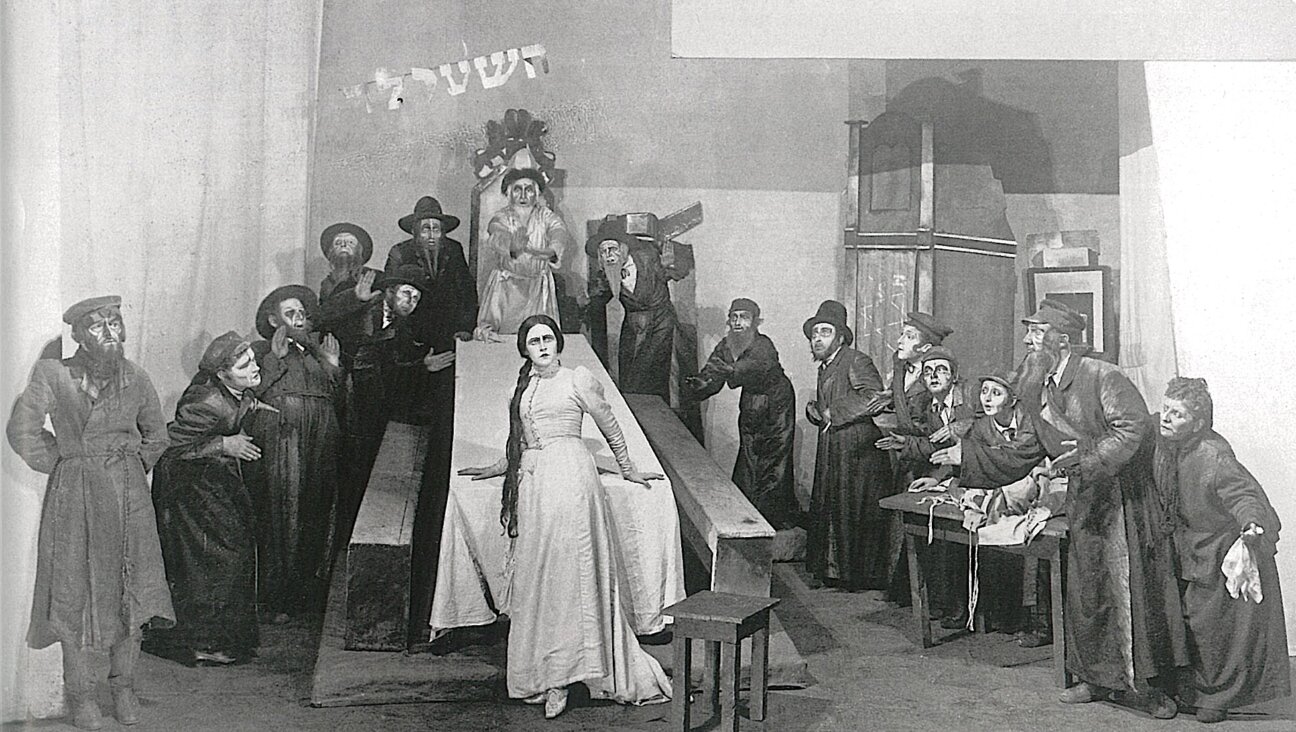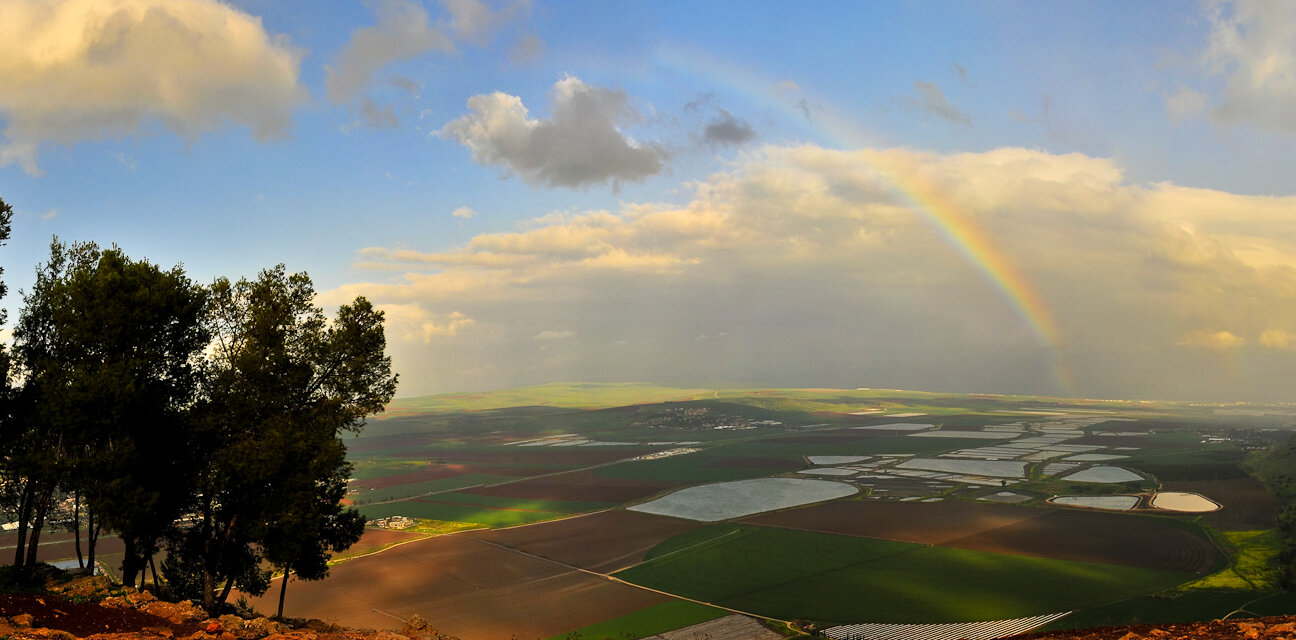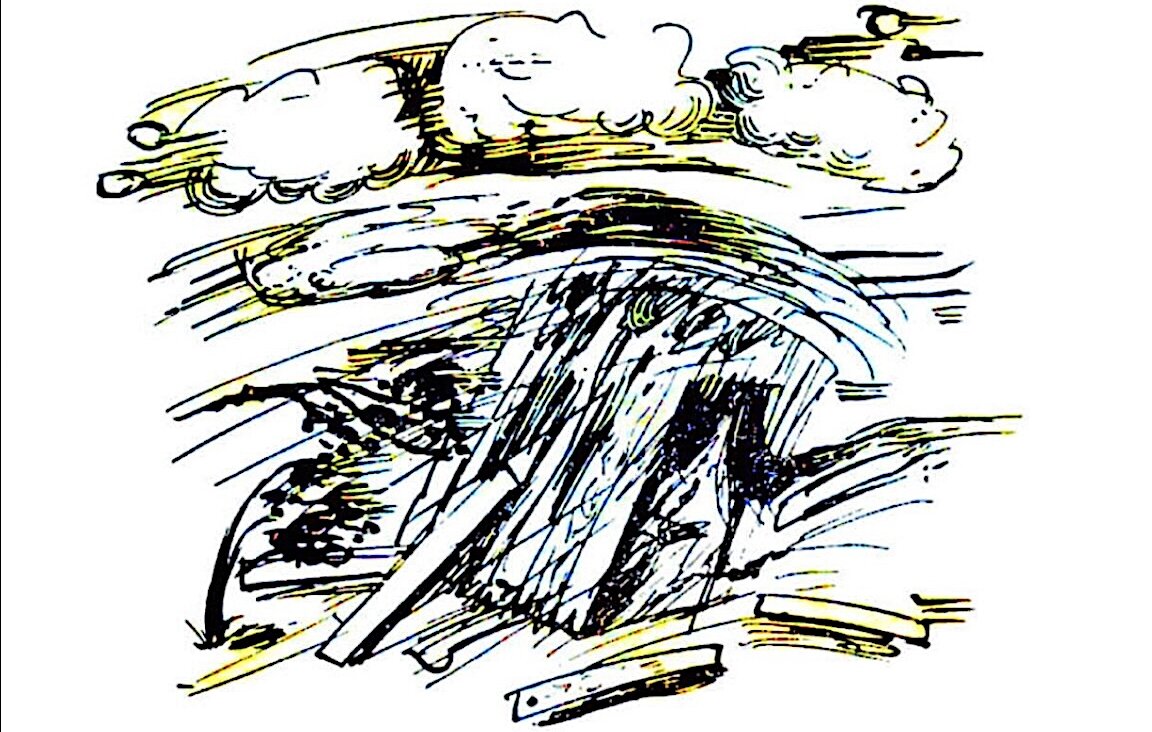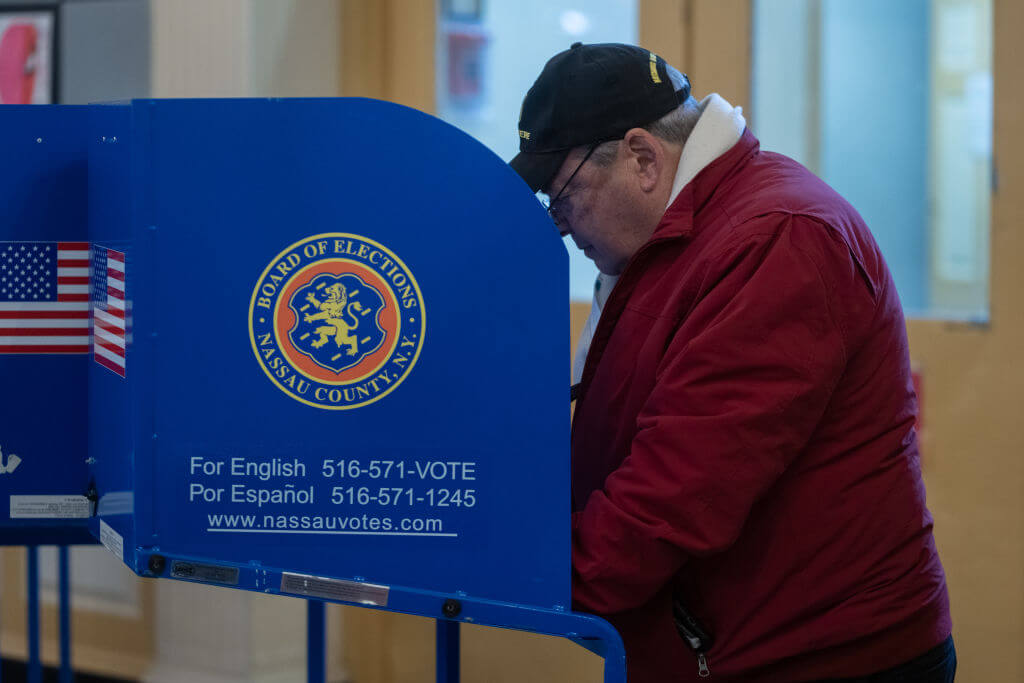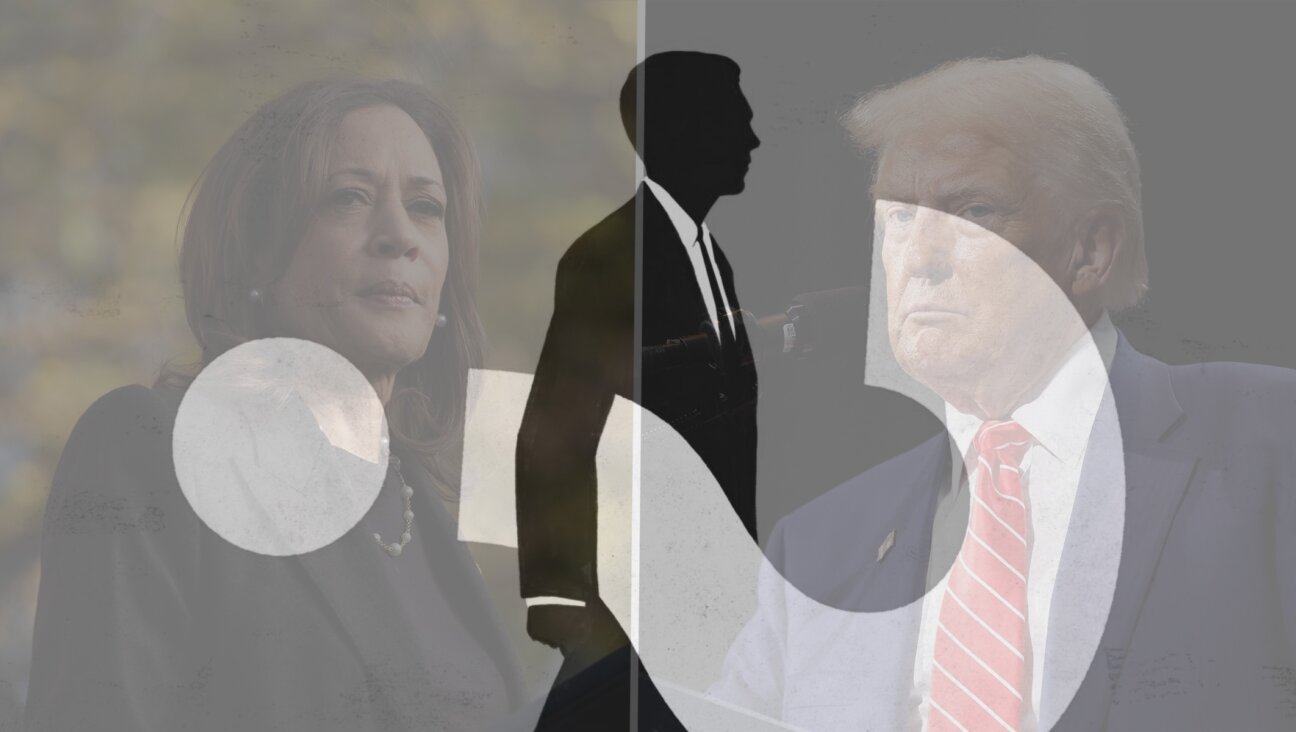Yiddishland California seeks generous donations to keep it in seaside La Jolla
If the Yiddish culture organization doesn’t raise $120,000 by December 31, it will be forced to move to another state.
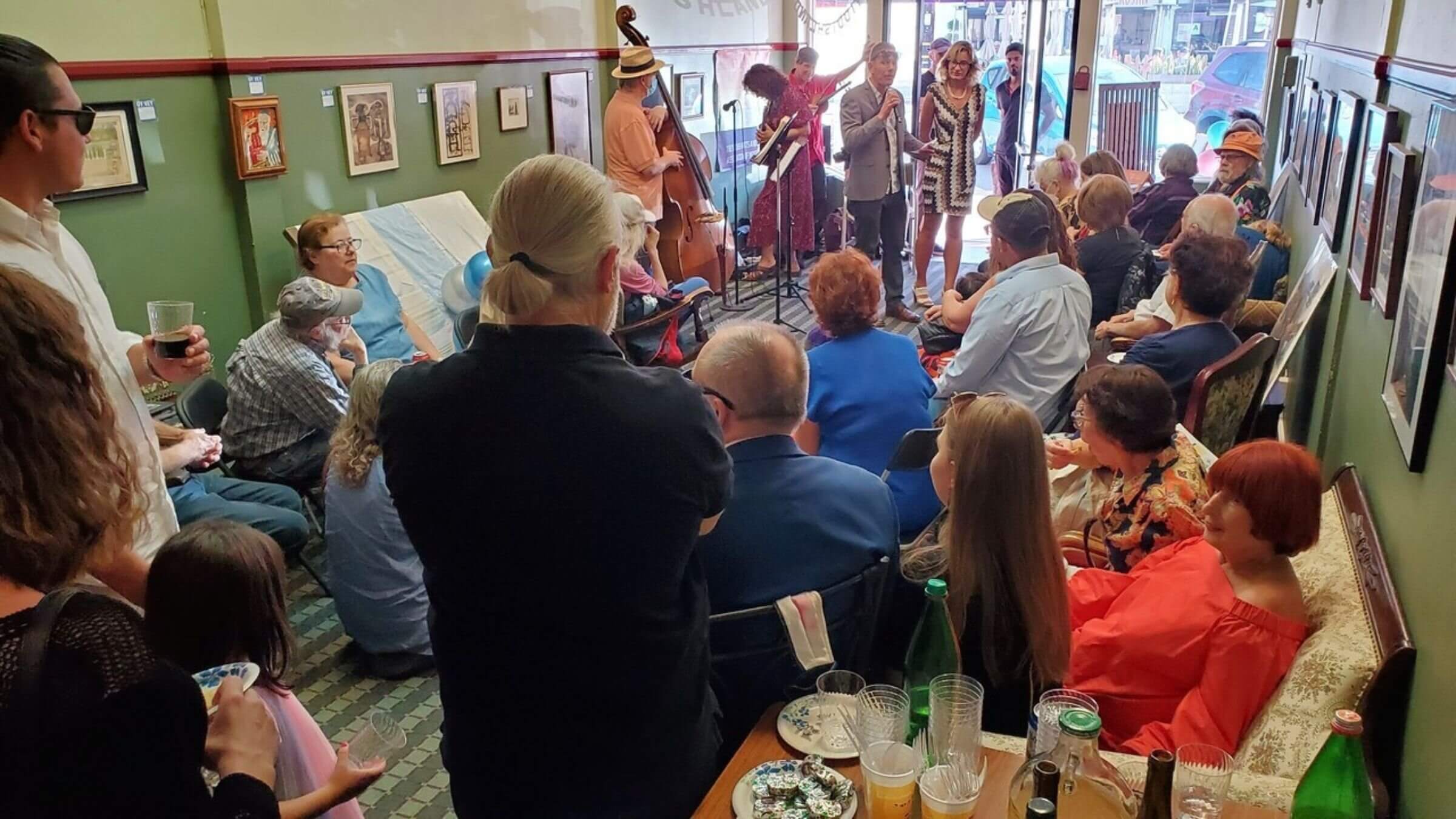
Yiddishland California in La Jolla’s grand opening in 2021. Courtesy of YAAANA
Sun. Sand. Sea. Yiddish.
This was the vision that led Jana Mazurkiewicz Meisarosh to found Yiddishland California in 2021.
Yiddish organizations on the West Coast are not thick on the ground. But Meisarosh’s cultural center and museum dedicated to promoting Yiddish language and culture enjoys a stellar location: Right in the heart of La Jolla, a wealthy coastal enclave of San Diego in Southern California. The climate is idyllic and the Pacific Ocean sparkles nearby.
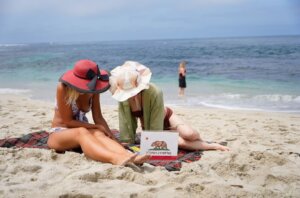
Yiddishland’s space is small — a long and narrow room filled with artwork, books and comfortable couches. But it has outstanding visibility. Everyone who lives in or visits La Jolla passes by. Its street-facing sign proudly proclaims its Yiddish identity. This is no small thing in a town where Jews were prevented from settling until 1964.
But Yiddishland California’s wonderful location is about to be lost. The landlord has been exceptionally patient, but he is about to raise the rent on such a desirable space. And because of the spike in antisemitism after October 7th, new security arrangements need to be made and paid for. If Yiddishland doesn’t raise $120,000 by December 31, it will be forced to move. The most likely new location would be suburban Florida. This would be a true loss for La Jolla, California and West Coast Yiddish cultural life.
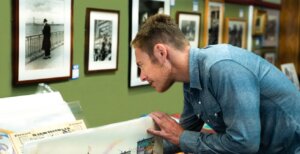
When Meisarosh first started promoting Yiddish in the San Diego area, she didn’t have a dedicated space to call her own. She had grown up in Kielce, Poland — site of the infamous post-World War II Kielce pogrom in 1946. She is Jewish, and became fascinated by Yiddish, which she calls “the language of my people.” After embarking on a doctoral thesis on Yiddish theater in Communist Warsaw at the University of Michigan, she moved to Southern California in 2016. She founded a non-profit group called YAAANA: The Yiddish Arts and Academics Association of North America. (The acronym actually sounds like her first name, Jana.)
Until COVID-19 hit, YAAANA sponsored theatrical performances, concerts, lectures, readings and other Yiddish-related events in various places around San Diego. But the COVID lockdown brought these activities to a standstill. Meisarosh felt strongly that she had to find an alternative. The lockdown made desirable downtown spaces available for lower rents than had previously been possible. The storefront on Wall St. in La Jolla opened up, and she leapt at the opportunity. Meisarosh is deeply grateful to the landlord who not only accepted what she could pay, but warmly welcomed her Yiddish organization. The new location was named Yiddishland California, under the sponsorship of YAAANA.
During the past two years, Yiddishland in La Jolla thrived. People on the East Coast are mainly familiar with its online Yiddish classes and conversation groups via Zoom. But the heart of Yiddishland’s identity is as a neighborhood institution. Thanks to its visibility in the town center, it attracts plenty of foot traffic. Many of those who stop in are not Jewish. They’re curious about what Yiddish is, and are attracted by the artworks displayed in the front window.
There are Yiddish books and Jewish objects such as menorahs and Sabbath candles on display. Meisarosh wants Yiddishland to be a “living museum” where everything can be touched. Visitors, particularly children, are encouraged to handle anything they like, and to ask questions.
Although some activities are geared specifically to people who speak Yiddish, many guests — especially the drop-ins — don’t. As Meisarosh says: “For someone who doesn’t know Yiddish or even recognize the Hebrew letters, a Yiddish book is not going to capture their imagination. But art speaks its own language. People can look at the artworks on the walls and at the objects standing on tables, and begin to make connections to their own cultures.”
Art is a central part of Yiddishland’s mission. Works by Jewish artists, both past and present, are always on exhibit, filling every inch of wall space. The paintings are either loaned by the artist or from Yiddishland’s own collection. Thanks to donations, Yiddishland owns a number of pieces — including by the Polish-Jewish artist and writer, Bruno Schulz. All the artwork is for sale to benefit Yiddishland.
For those who have time to linger, Meisarosh offers “Yiddishland Yada Yada” — a focused and highly interactive way of experiencing Jewish art. At each session, Meisarosh shows the audience specific paintings and highlights their Jewish and Yiddish aspects. The artist (when possible) and an art critic or scholar give their own perspective, and guide the audience in a group discussion. All Yiddishland Yada Yada events are broadcast on Zoom for viewers outside the La Jolla area.
Children are also encouraged to make art on the premises. Meisarosh’s six-year-old daughter brings friends from school to Yiddishland’s art-making activities, storytelling groups, concerts, performances and more. Many of the children who visit aren’t Jewish. “Introducing kids from all backgrounds to the joy of Yiddish culture is a wonderful way to combat antisemitism,” says Meisarosh. “The positive associations they build here with Jewishness can have a real influence down the road.”
Multiculturalism within the Jewish community is also an important part of Yiddishland. La Jolla is only 30 miles from the Mexican border, and Yiddish-speaking Jews from Mexico City feel very at home at Yiddishland. Meisarosh has begun offering online courses in Ladino, or Judeo-Spanish, to further honor the Spanish-speaking side of Jewish culture. Many Ashkenazi Jews in San Diego have ties to South Africa, bringing their own traditions and perspectives to Yiddishland’s cultural life.
Despite being so active, diverse and inclusive, Yiddishland is not the kind of organization that brings in significant money (a familiar problem across Yiddish institutions). If they’re forced to leave La Jolla for financial reasons, a very different future may await them. The location in Florida where they might settle is not in a town center. A guard would probably need to stand by the door, checking who comes and goes. The spontaneous neighborly feel of Yiddishland California would likely be lost.
Even if the group can stay in La Jolla, Meisarosh doesn’t take it for granted. She wants to develop a Yiddishland campus, hopefully with the La Jolla storefront as an anchor. She envisions the campus being used for weddings and dinners. On-site guest rooms would make it easier to host larger events. Right now, an international group of students studying 3D animation and architecture is helping to design this future campus as part of their education.
Wherever Yiddishland ends up — California, Florida or another state — Meisarosh will never stop finding ways to celebrate Yiddish culture with other members of her community.
If you’d like to donate to Yiddishland California, click here.
A message from our CEO & publisher Rachel Fishman Feddersen

I hope you appreciated this article. Before you move on, I wanted to ask you to support the Forward’s award-winning journalism during our High Holiday Monthly Donor Drive.
If you’ve turned to the Forward in the past 12 months to better understand the world around you, we hope you will support us with a gift now. Your support has a direct impact, giving us the resources we need to report from Israel and around the U.S., across college campuses, and wherever there is news of importance to American Jews.
Make a monthly or one-time gift and support Jewish journalism throughout 5785. The first six months of your monthly gift will be matched for twice the investment in independent Jewish journalism.
— Rukhl Schaechter, Yiddish Editor







